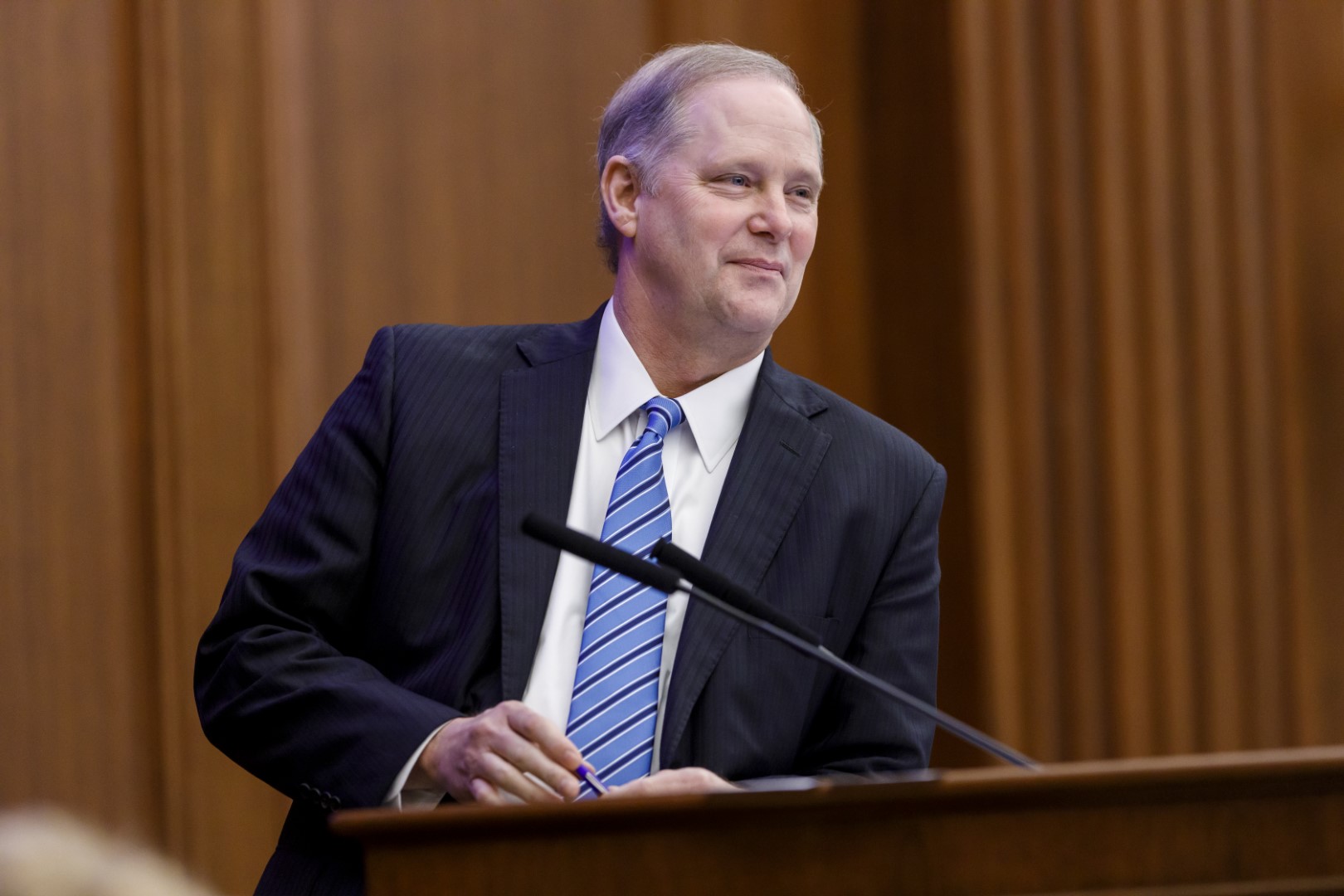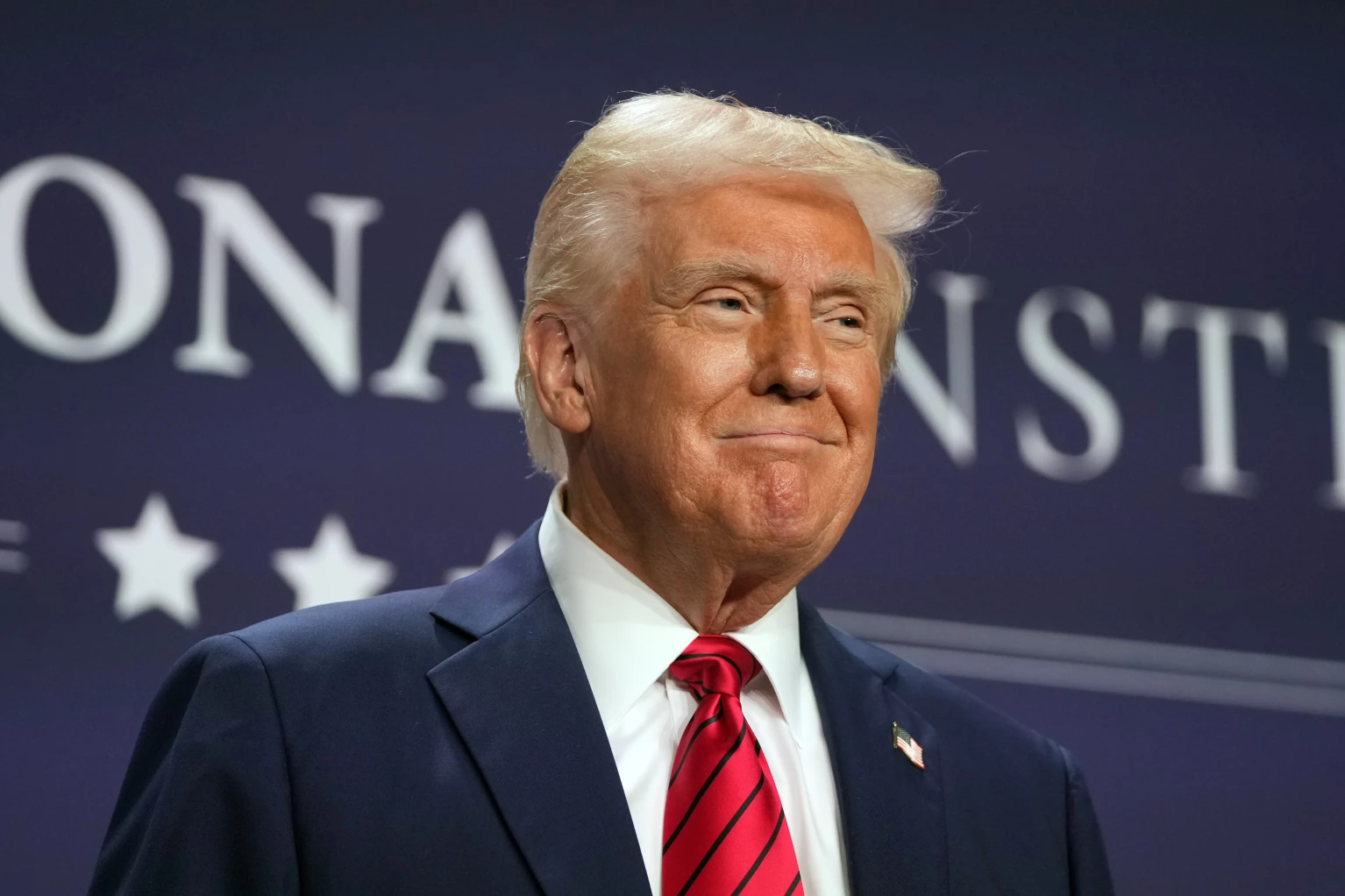President Donald Trump on Tuesday signed an executive order to study how to expand access to in vitro fertilization and make it more affordable.
The order calls for policy recommendations to “protect IVF access and aggressively reduce out-of-pocket and health plan costs for such treatments,” according to the White House. On the campaign trail, Trump called for universal coverage of IVF treatment after his Supreme Court nominees helped to overturn Roe v. Wade, leading to a wave of restrictions in Republican-led states, including some that have threatened access to IVF by trying to define life as beginning at conception.
Trump, who was at his Florida residence and club Mar-a-Lago, also signed another executive order as well as a presidential memorandum. The second executive order outlined the oversight functions of the Office of Management and Budget, while the presidential memorandum called for more transparency from the government, according to White House staff secretary Will Scharf, whom Trump called to the podium to detail the orders.
The order called for “radical transparency requirements” for the government, requiring it to detail the “waste, fraud and abuse” that’s found as the Department of Government Efficiency, overseen by Elon Musk, looks to cut government spending.
DOGE has often fallen short of the administration’s promises of transparency. Musk has taken questions from journalists only once since becoming Trump’s most powerful adviser, and he’s claimed it’s illegal to name people who are working for him. Sometimes DOGE staff members have demanded access to sensitive government databases with little explanation
According to a fact sheet provided by the White House, Trump’s IVF order will focus on prioritizing whether there are any current policies “that exacerbate the cost of IVF treatments.”
Last year, Trump declared public support for IVF after the Alabama Supreme Court ruled that frozen embryos can be considered children under state law. The decision, which some Republicans and conservatives cheered, touched off immediate backlash.
On the campaign trail, IVF quickly became a talking point for Trump, who said he strongly supports its availability.
In vitro fertilization offers a possible solution when a woman has trouble getting pregnant. The procedure involves retrieving her eggs and combining them in a lab dish with a man’s sperm to create a fertilized embryo, which is then transferred into the woman’s uterus in an attempt to create a pregnancy. IVF is done in cycles, and more than one may be required.
“I think the women and families, husbands, are very appreciative of it,” Trump said in brief remarks on the order, before he took questions on a variety of topics.
Barbara Collura, President and CEO of RESOLVE: The National Infertility Association, said that what the White House put out “looks extremely promising.”
“The biggest barriers for people to building their families are the out-of-pocket costs, the lack of insurance coverage for this care,” she said.
Trump took more than 30 minutes of questions on a range of topics and bashed the Biden administration throughout, highlighting issues including its handling of the U.S.-Mexico border and Venezuela policy to Russia’s war in Ukraine.
Trump said he thought he had a “good chance” to end Russia’s war in Ukraine but bristled at suggestions that the U.S. and Russia had begun negotiations to end fighting without Ukraine playing a role. He even seemed to suggest that Ukraine was to blame for a war that began only after Russia invaded that country.
“Today I heard, ‘Well, we weren’t invited.’ Well, you’ve been there for three years,” Trump said of Ukraine’s leaders. “You should have never started it.”
In anticipation of questions about his administration’s efforts to slash federal spending, the President said he wrote down examples of government programs around the world which he then listed off at length. They included everything from funding to promote voter turnout in India to social cohesion initiatives in Mali – all of which Trump suggested collectively amounted to fraud.
Asked about the White House arguing in a court filing that Musk wasn’t the head of Trump’s government efficiency efforts, Trump said, “You could call him an employee, you could call him a consultant, you could call him whatever you want. But he’s a patriot.”
Trump, who spent the morning at his golf club in West Palm Beach, Florida, spoke to reporters hours before his first joint TV interview with adviser Musk airs in prime time.
Trump and Musk gave their first joint interview to Sean Hannity of Fox News Channel. The interview was taped on Friday at the White House and is set to air as Musk leads Trump’s effort to cut federal spending and slash the federal workforce.
Musk has drawn criticism from Democrats in Congress and others for the methods he and his team at DOGE are using to cut spending, including foreign aid, and eliminate jobs across the bureaucracy.
The Fox News interview also follows Musk’s appearance with Trump in the Oval Office last week, when both defended Musk’s approach to federal cost-cutting.
In an excerpt from the interview that Fox News released on Sunday, Musk said he “used to be adored by the left” but “less so these days” because of the work he’s doing at Trump’s direction.
“They call it Trump derangement syndrome. You don’t realize how real this is until you can’t reason with people,” Musk said, adding that normal conversations with Democrats about the President are difficult because “it’s like they’ve become completely irrational.”
Trump’s Mar-a-Lago Club is the setting Tuesday night for an awards program by America’s Future, a conservative group led by Mike Flynn, who briefly served as national security adviser in the Republican President’s first term. The program aims to preserve individual rights and promote American values and traditions, according to its website. The event, celebrating American exceptionalism, will honor one member from the Army, the Navy, the Marines, the Air Force and the Space Force.
The event includes a poolside reception, musical performances and dinner in Mar-a-Lago’s Grand Ballroom, where other award presentations are expected from a lineup that includes such names as Russell Brand, Ted Nugent and Mike Tyson.
It’s unclear whether Trump will participate in the event.
___
Republished with permission of The Associated Press.
Post Views: 0

 Entertainment8 years ago
Entertainment8 years ago
 Entertainment8 years ago
Entertainment8 years ago
 Politics8 years ago
Politics8 years ago
 Tech8 years ago
Tech8 years ago
 Tech8 years ago
Tech8 years ago
 Tech8 years ago
Tech8 years ago
 Politics8 years ago
Politics8 years ago
 Tech8 years ago
Tech8 years ago













